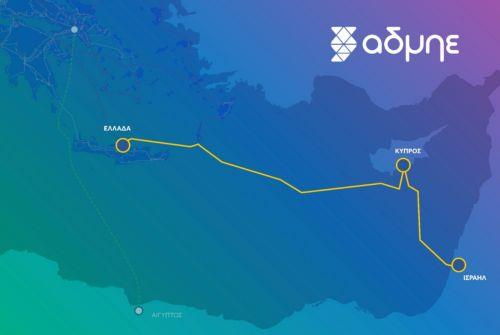It is risky to allocate funds for the Great Sea Interconnector (GSI) project, Finance Minister Makis Keravnos warned on Monday, citing studies that suggest the project may not be financially sustainable.
Speaking after Monday’s meeting of the Council of Ministers for the approval of the 2026 state budget, Keravnos said that no budget funds had been allocated for the implementation of the GSI, which is set to connect the energy grids of Cyprus, Greece, and Israel.
“I still think this issue is under discussion. If we pay the money, there is a risk. As I have said, studies suggest that the project is not viable,” he said, reiterating his long-standing concerns about the project.
The GSI has encountered several setbacks, with the Cypriot government currently withholding a total of €25 million which had been requested by Greece’s independent transmission system operator, Admie, to help finance the project.
Keravnos said that he had already spoken about the internal and external risks that had been considered when preparing the budget, adding that the GSI was among those, and stressing that nobody knew the final cost of the project.
Regarding the € 67 million that the European Commission demanded to be returned for the Vasiliko liquefied natural gas (LNG) terminal that was never completed, Keravnos said that the issue had been discussed and would be managed.
“There may be an offset with other funds that will come here. We are not giving up, we are fighting,” he said.
When asked by a journalist whether he was “bargaining over the amount,” the Minister said that the amount was not negotiable under any circumstances.






Click here to change your cookie preferences